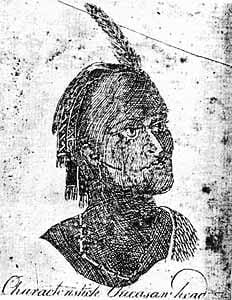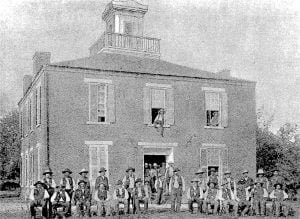Topography of the Chickasaw Nation
The general topography of the country is that of a rolling prairie in the west, more hilly and -wooded in the east. The country is well watered by the South Canadian, Washita, and Red rivers, with their numerous tributaries. In the extreme west the cattle industry still flourishes to a considerable extent, although the small farms are rapidly encroaching upon the cattle ranges. Innumerous river valleys and creek bottoms the agricultural resources of the country attain their highest development, though the uplands are capable of producing bountiful crops. In the central part of the nation a high range of hills, … Read more


